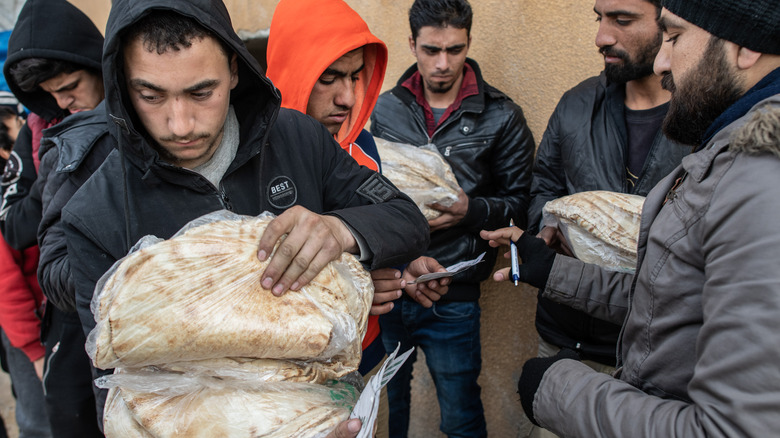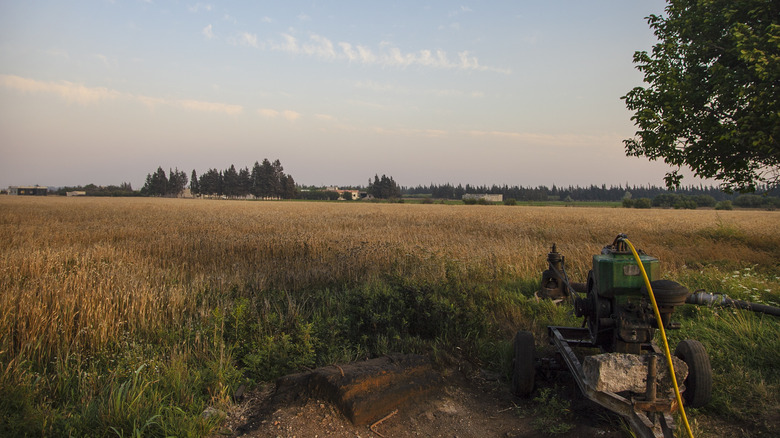Why Syria Is Gearing Up For A Large Scale Food Shortage
Syria is facing a wide-scale food shortage, according to Reuters. The wire service reports that the Kurdish authorities that control the northeast of Syria, considered the nation's bread basket, have warned that this year's harvest falls short of the amount needed to feed the region, leaving nothing to send to other parts of the country. The expected yield is 450,000 tons, well below the 600,000 needed to feed Syria in its entirety.
The harvest shortfall comes at a time when Syria was already suffering from rampant food insecurity. According to a report prepared by the Carnegie Endowment for International Peace, Syria's wheat output has slowed dramatically since the civil war erupted in 2011. The wheat reserves once held to reduce reliance on the West and stave off any economic sanctions were nearly depleted by 2015, when the report was last updated.
Some 11 years later, the country remains battered by the continuing civil war, with the BBC reporting that some 14.6 million Syrians who remained in the country are in "catastrophic need" of aid. And, 12 million of those are food insecure.
Why a food shortage may impact Syria
Bread is a critical part of the Syrian diet. Made from a mix of flours that yield a higher protein content, it's eaten with every meal. The bread is so valued that Syrian refugees on the boarder refused to eat the fluffier Turkish white bread. Bread was even weaponized, when President Bashar al-Assad's army made targeted attacks on bakeries in rebel-controlled areas (via Vice).
Now Syria is experiencing a perfect storm of climate change impact, fuel shortages, and rising costs because of the war in Ukraine. While last year's harvest suffered from drought, this year the rain "didn't come at the right time," Nabila Mohamed, who oversees agricultural development in the region, tells Reuters. Dry spells are prolonged and, even when rain falls, it's not enough. Meanwhile, diesel fuel is scarce and the cost of fertilizer has skyrocketed — a direct result of Russia's war in Ukraine.
Compounding the water scarcity, Phys.org reports that Turkey built dams blocking the flow of water from the Khabour river. Some farmers have given up on their wheat crops, allowing livestock to graze on their dying fields.
Imran Riza, Humanitarian Coordinator in Syria for the United Nations, tells Reuters, "Food costs have risen dramatically, production and supply has been low and the indications for the next harvest are very worrying. We are extremely concerned about the overall food security situation."

